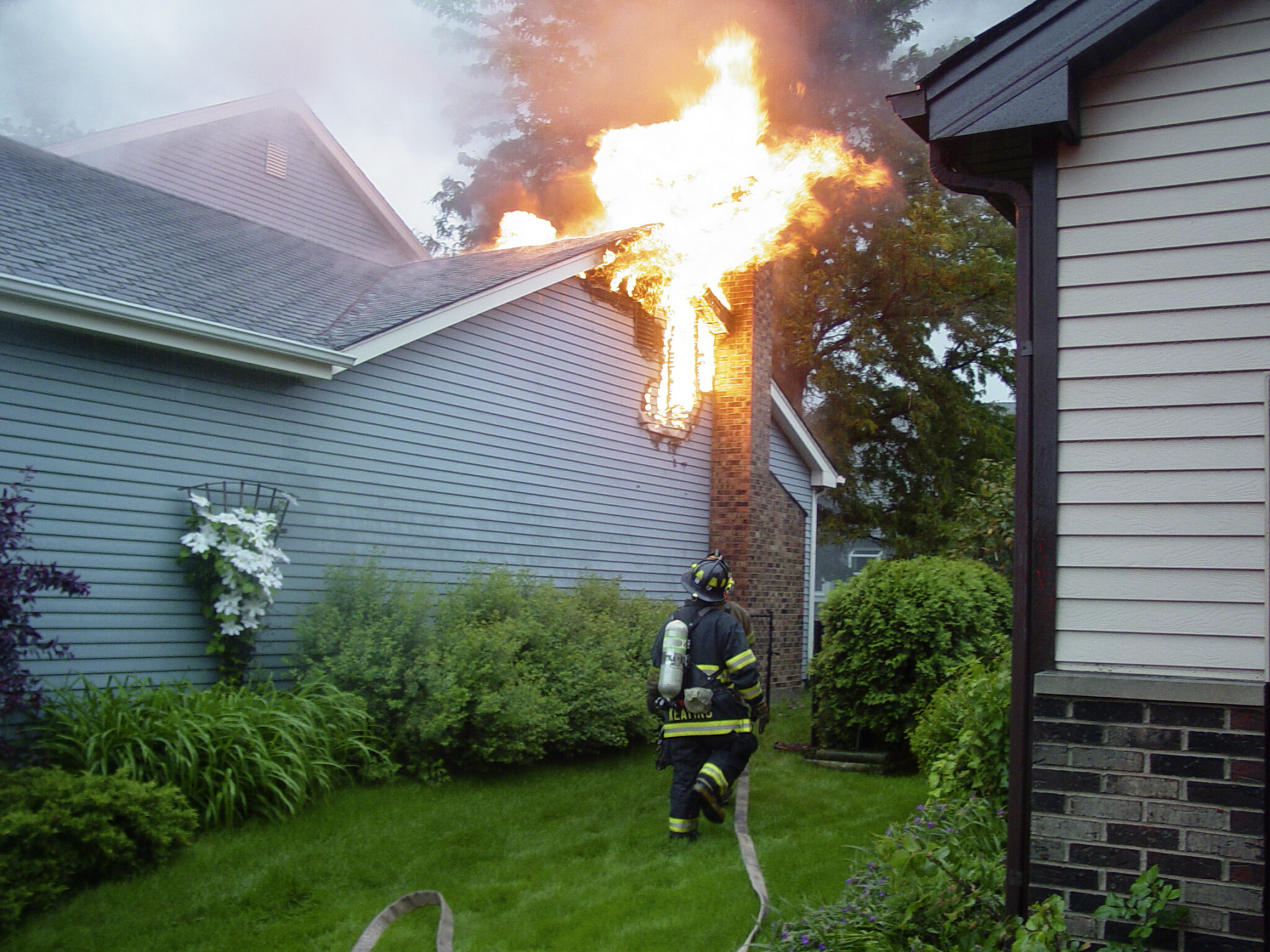Fire Damage: What Your Short-Term Rental Insurance Covers

Does my insurance cover fire damage? Generally, yes. Most standard homeowner’s insurance policies cover damage to your property in the event of a fire. But a standard insurance policy won’t necessarily cover fire damage to a short-term rental property. If you rent your property, you’ll need a specialized form of rental insurance.
Understanding Short-Term Rental Insurance
Most homeowners’ insurance providers view short-term rentals as a form of business use. Thus, if your property is damaged when you rent it through Airbnb or Vbro, your insurance provider won’t cover the damage unless you have a short-term rental insurance policy.
What Does Short-Term Rental Insurance Cover?
While policies vary by provider, most short-term rental insurance policies cover things like fire, wind damage, theft, and vandalism. Some short-term rental insurance providers have options to extend coverage to things like excess utility bills, pest control, or liquor liability.
In addition, insurance providers often offer liability protection. This covers bodily injury and property damage to others. Having this coverage in place can protect you from a lawsuit.
What Won’t Short-Term Rental Insurance Cover?
Short-term policies largely mirror the restrictions of a homeowners’ insurance policy. This means that the following are not usually covered:
- Floods
- Earthquakes
- Mold and rot
- Maintenance and general wear-and-tear
These restrictions aside, a short-term rental insurance policy can protect you from a range of other hazards, including those caused by your renters.
Does My Insurance Cover Fire Damage?
Does this mean that your home is protected from fire damage? Yes — as long as you have qualifying short-term rental insurance coverage AND the fire was caused by the guest. Standard homeowner’s insurance won’t cover damage caused by renters, but rental insurance will.
Make sure to find short-term rental insurance that protects you from damage caused by renters, including fire. If a fire is caused by the appliance itself failing (example: a heating element on an oven malfunctions), then that event is typically not covered. And when comparing insurance providers, check that your short-term rental insurance policy offers the following areas of coverage.
Dwelling Coverage
At a minimum, you’ll need a short-term insurance policy that protects the dwelling itself. This ensures that the actual structure of your home is covered after a fire or other qualifying event.
If you have outbuildings such as a shed or detached garage, ensure that your dwelling coverage applies to these structures as well. That way, your entire property is protected from fire damage.
Personal Property Coverage
Personal property coverage will pay for the cost of repairing or replacing personal belongings inside the home. It will protect elements such as your furniture, appliances, and electronics from fire damage. Many rental insurance policies will also protect your property from other forms of damage and theft.
As with dwelling coverage, it’s important that you find out whether your personal property coverage applies to items stored in outbuildings and detached structures. If it does, you can feel safe in the knowledge that your entire property is protected from covered events like fires.
Liability Coverage
Liability coverage will protect you if a guest is injured on your property and takes legal action. A liability policy can cover medical expenses and potential legal fees from injuries or damage caused by fire or other events, such as accidents.
During a fire, your short-term rental insurance also has the potential to protect neighboring properties. In other words, if a fire at your rental property spreads to a nearby home, your liability coverage could cover damage to their property as well as yours.
Loss of Rental Income
Short-term rental insurance offers something that’s not found in standard homeowners’ policies: protection for the loss of rental income. This coverage will provide an alternative source of income if your property is damaged due to a fire or other covered event.
Not all providers offer this policy, nor is it always desirable. This feature can drive up the cost of insurance, which can take away from your rental income. With that in mind, make sure to consider pricing before adding this insurance option.
Why You Need Short-Term Rental Insurance
Do you really need short-term rental insurance? Technically, it’s not a legal requirement. But standard homeowners’ insurance policies will not cover a home that you rent out since it’s now classified as a business asset. And many rental platforms require you to have some sort of rental protection in place before renters book time in your property.
Without short-term rental insurance, you can be liable for the damage that other people cause to your property. And if someone is injured, you could face a lawsuit if you lack liability coverage. Rental insurance is therefore a must-have for those seeking to rent out their property, even on a short-term basis.
Things to Look for in Short-Term Rental Insurance
What other considerations should influence your choice of rental insurance? Look for providers that offer you the following.
Flexibility
Some providers only charge you for the nights you actually rent the property. Safely makes sure you only pay for what you need when you need it.
Guest Screening
Today’s best insurance providers offer guest screening tools. With Safely, you’ll receive alerts to renters who appear on sex offender registries and global watchlists. This allows you to make a truly informed decision about your renters.
An Easy Claims Process
Filing a claim should be fast and easy. Safely streamlines the process by allowing you to upload photos and submit claims electronically.
Protection Types
Make sure your short-term rental insurance offers you the three main types of protection. Safely can help cover your dwelling and its contents, as well as provide liability coverage.
Affordability
Your insurance costs don’t just affect your business. The higher your insurance rates, the more you’ll have to charge to rent your property — which can affect your ability to attract guests. Choose a provider that offers solid value without forcing you to raise your rates.
Get the Protection Your Guests Deserve
Safely can protect your short-term rental property from fire and other major events. That’s something your homeowners’ insurance can’t do. If you’re seeking additional income by renting your home or another property, contact Safely to discover how our affordable plans can keep you, your property, and your guests safe.






